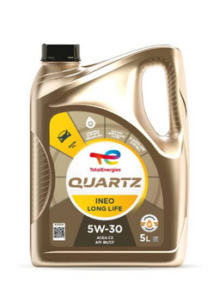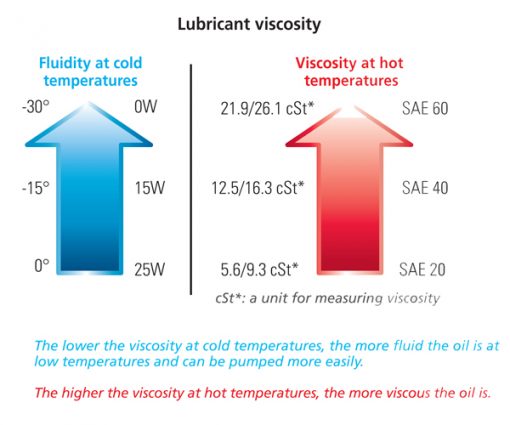the role of an engine oil
In the vast majority of our articles, we highlight that a lubricant performs a number of key functions other than its core role of lubrication.
- Corrosion Inhibitors are designed to protect the engine against corrosion and wear & tear. Over time oil starts to oxidise. These special additives help to increase engine life while allowing greater performances.
- Metal to metal contact between the moving parts of the engine is reduced by the oil. It does this by creating a thin film between the various parts. This reduction in friction allows the engine to perform more efficiently while reducing fuel consumption.
- A key component of the additive pack for engine oil is detergents. These additives help to remove impurities that travel to the oil filter while also cleaning existing deposits and foreign substances in the engine. This increase in engine cleanliness helps to reduce the damage these contaminants may have caused.
- Engine Oils act as a Seal space between the piston & cylinder as they are not completely smooth These gaps are filled by the Engine Oil optimising engine performances and efficiency.
- The coolant system based in engines cools the upper engine and its parts. Engine Oil Cools the engine, preventing energy loss, & engine deterioration.
In this post we will look at the importance of viscosity and its integral role in ensuring that lubricant performs at the highest level.

what is viscosity
Viscosity can be defined as an oil’s resistance to flow and is the most important factor when choosing an oil. Viscosity plays an essential role in both the wear and tear rate of the engine and also performance. Viscosity is also important in relation to fuel consumption as the engine can operate more efficiently.
So, what does resistance to flow mean? Water, for example, is a low-viscosity fluid because it can flow incredibly fast. On the other hand, a liquid like syrup is considered a high-viscosity fluid because it flows very slowly. If we increase the temperature of syrup, the viscosity drops, meaning that it will flow faster.

viscosity grades
Single-viscosity oil and multi-grade oil are the two types of engine oil that are commonly found on the market today. Today, the vast majority of vehicles run on a multi-grade lubricant. If you take a 5W-30 engine oil for example, the lower the number, the thinner the oil and the more easily it flows. The 5W refers to how the oil flows at low temperatures (in winter); 40 refers to how it flows at high temperatures.
how is it measured?
An oil’s viscosity is measured most commonly by kinematic viscosity and reported in a unit called the centistoke (cSt). Kinematic viscosity is measured in the time it takes for a specific volume of oil to flow through a special device called a capillary tube.
Not all oils respond in the same way to changes in the temperature. In fact, many oils contain a property that allows them to resist temperature related viscosity changes. This property is referred to as the oil’s viscosity index or VI. The higher the VI of an oil, the less its viscosity is altered by temperature changes.
BENEFITS OF OILS WITH A HIGH VISCOSITY INDEX
There are a number of benefits of using an oil with a high viscosity index.
- Viscosity is increased at higher temperatures meaning more protection against wear and tear while also meaning that less oil is consumed
- A reduced viscosity at lower temperatures improves the ability of a vehicle to start and helps to lower fuel consumption.
One of the most important factors of an oil’s viscosity is its ability to resist shearing. Oil shearing occurs when the conditions that the oil faces reduces its viscosity. Engine Oil faces an enormous amount of stress and severe operating conditions (shock loads, very high temperatures) which means the lubricant will not remain in its normal state. A reduction in viscosity, the protection from wear and tear dramatically reduces and catastrophic failure of the engine could occur quickly.
Engine Oils are essential to the performance and lifespan of your vehicle and viscosity is the most important ingredient. Original Equipment Manufacturers (OEM’s) have put engine oils through a number of vigorous tests to ensure that they pass the grade when it comes to engines. Before you go to the shop and pick up an engine oil, always check the owner’s manual to see what they recommend for use in their engine.

Totalenergies' quartz with age resistance technology
Cars are constantly improving as technology advances. Engines in particular are becoming more dynamic, faster, and efficient.
But as these innovations are introduced, the demand for newer regulations and cleaner energies grow as car manufacturers find ways to lower emissions, including CO2. Therefore, the objective is to enhance technologies for greater efficiency, without increased environmental costs.
One of the most prominent features of new cars today is engine downsizing and turbocharging. Normally, by reducing the number or the capacity of the engine cylinders, engines become more efficient and lightweight, resulting in a more agile and compact car.
Add turbocharging and you get drastically more engine power. Customers benefit from better performance, lower fuel consumption along with a smaller carbon footprint.
But these innovations bring new challenges. Faced with high temperatures and pressures, oil oxidation/degradation is accelerated, leading to increased wear and sludge build up. Consequently, the car owner has a higher risk of premature engine breakdown.
This is where Quartz with Age Resistant Technology, a breakthrough innovation, comes into play. With 15,000 hours of testing and engineering to boost product performance, Quartz with ART reinforces oil molecules and aims to be more resistant to oxidation, helping to combat sludge and wear and a wide range of benefits including:
1. optimal performance for your engine
TotalEnergies’ with ART increases molecular interaction to offer the ultimate resistance to oil oxidation and sludge build-up, helping your engine to stay younger for longer.
2. better protection under extreme temperatures
TotalEnergies’ Quartz provides improved protection for your car engine, even in extreme heat and cold.
3. IMPROVED FUEL ECONOMY BY UP TO 4%
Less friction between an engine’s moving parts means reduced energy waste and greater fuel economy. Less fuel consumption also means lower emissions.
This innovative lubricant technology can transform a car owner’s experience on the road as well as save maintenance costs.

